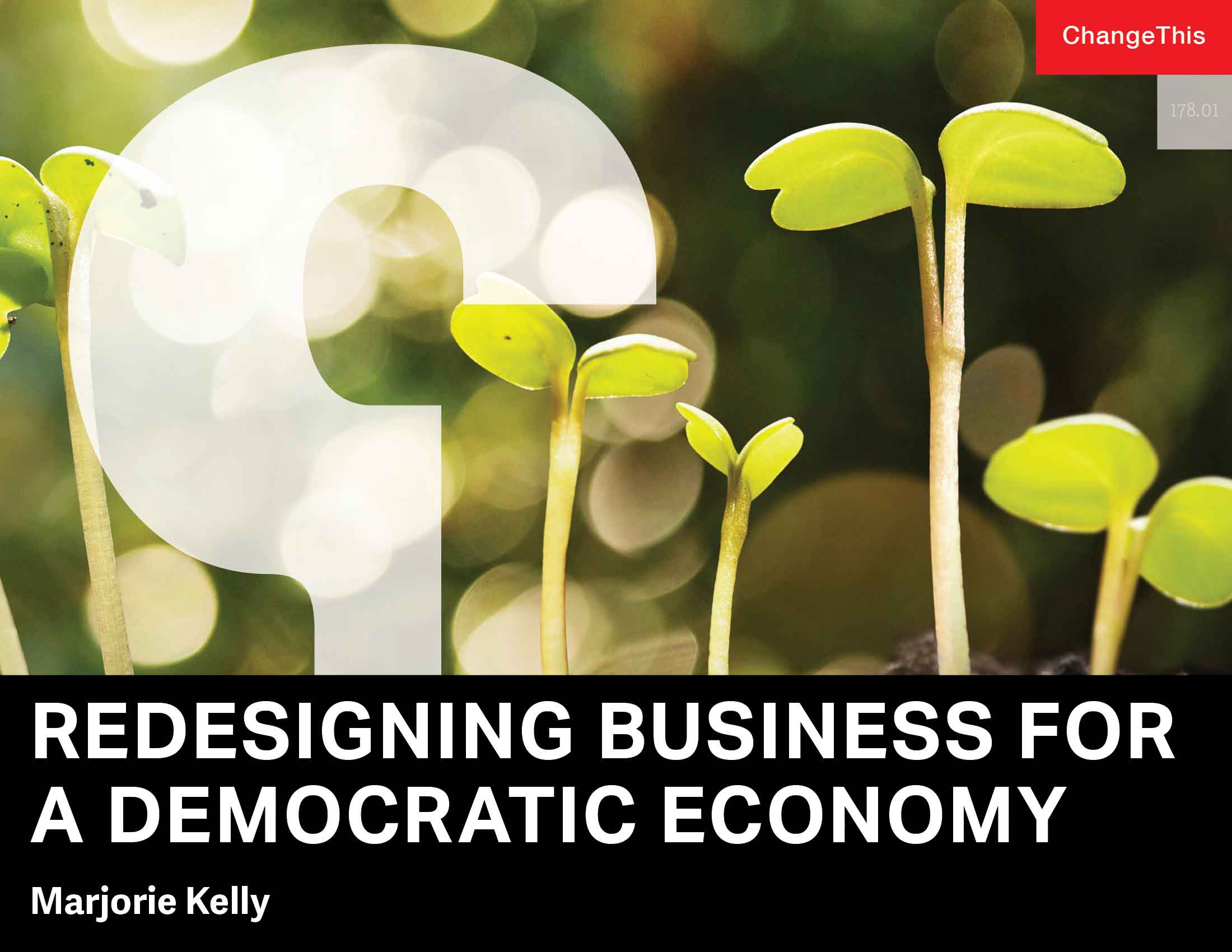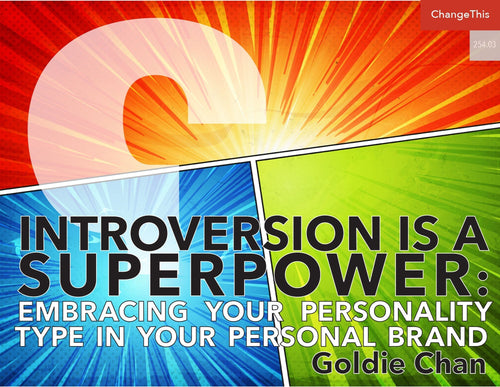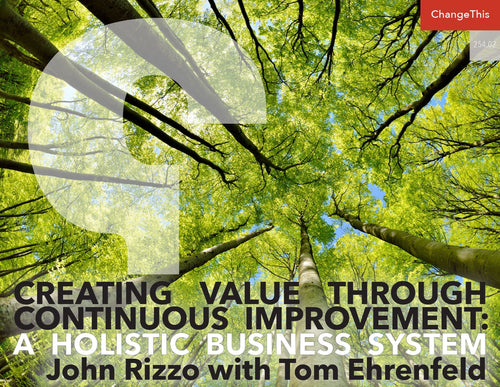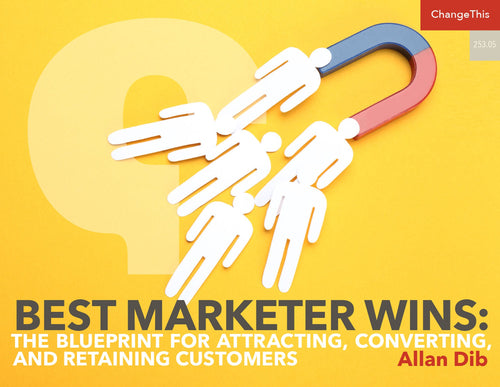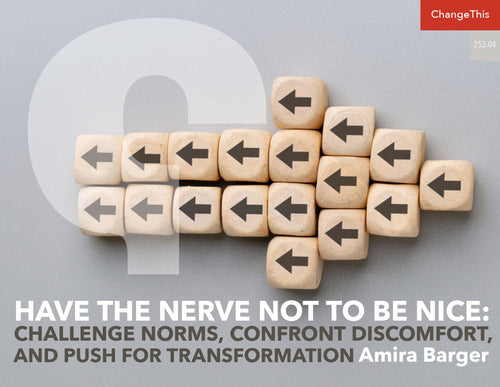Redesigning Business for a Democratic Economy
When a cross-section of the world’s financial elite met at the World Economic Forum in Davos, Switzerland in late January 2019, a key topic was the increasing loss of faith and patience with the economic status quo.
Axios called it “a reckoning for capitalism.” In a major survey released during the event, it was revealed that “only one in five feels that the system is working for them.” As one CEO told Axios, “We need to get in front of this problem or it’s going to get in front of us.”
We find ourselves in a moment of breakdown—but also a moment of unprecedented opportunity. Even as widespread faith in the workings of our economy is falling apart, unsung innovations are quietly arising. Entrepreneurs, business executives, investors, and community leaders are choosing to “get in front of this problem,” showing how we can move beyond an economy that serves the few to one that serves the many. In scattered experiments—disconnected, often unaware of one another—unsung leaders are beginning to build what so many of us hunger for but can’t imagine might be possible: an economy that could enable us all to live well, and do so within planetary boundaries. What’s under construction in our time is a new economy that is more inclusive, more sustainable, more equitable, more community-centric—in a word, more democratic.
The redesign or our economy—the making of the new democratic economy—is farther along than most of us realize. New kinds of enterprise are at the heart of it. There are nonprofits running social enterprises that exist to hire the hard-to-employ, like Tech Dump in Minneapolis, which trains the formerly incarcerated in electronics recycling. Social enterprises use business methods to tackle social problems. A network of these, the Social Enterprise Alliance, has more than 900 members in 42 states. Social entrepreneurship is taught at business schools like Oxford, Harvard, and Yale.
Worker-owned cooperatives are growing rapidly—like Si Se Puede!, a Brooklyn house-cleaning enterprise owned primarily by Latinas. After Cristina, a Mexican immigrant and single mother, joined this cooperative, she saw her wages jump from $7 to $20 an hour. Unions are launching worker cooperatives; an example is Communications Workers of America Local 7777, which incubated Green Taxi in Denver, with a leadership and board made up entirely of immigrant drivers from East Africa and Morocco. Cities advancing worker co-ops include New York; Newark, New Jersey; Oakland, California; Rochester, New York; and Madison, Wisconsin.
“The redesign or our economy—the making of the new democratic economy—is farther along than most of us realize.”
There are more than 6,600 companies in the US with employee stock ownership plans (ESOPs), and ESOPs hold assets of close to $1.3 trillion. Included are firms like women’s clothing firm Eileen Fisher, with 1,200 employees, and New Belgium Brewing, the maker of Fat Tire Amber Ale and the fourth largest craft brewer in the country, 100 percent owned by its employees.
Also embodying deep change are 5,400 benefit corporations incorporated under statutes in 34 U.S. states, including firms like Kickstarter and King Arthur Flour that have embraced a legal commitment to the public good. There are 2,655 similar B corporations in 60 countries, certified by the nonprofit B Lab.
The U.S. cooperative sector—businesses owned by the people they serve—represents more than $500 billion in revenue and employs 2 million people. Cooperatives include credit unions, which are member-owned; agricultural cooperatives like Sunkist, Ocean Spray, Land o’ Lakes, and Organic Valley; and consumer cooperatives like REI. Globally, they employ more than 12.6 million and have more than 1 billion members, with combined revenues of well over $3 trillion. Among the largest is the Mondragon Cooperative Corporation of Spain, a worker-owned federation including 98 worker-owned cooperatives, with 80,000 workers and €12 billion in revenue.
Also emerging is perhaps the most exciting new kind of enterprise, which I term “next generation enterprise.” In our research at The Democracy Collaborative, we have found more than 50 of these firms, which are mission-led, employee-owned firms. They include Eileen Fisher, New Belgium Brewing, ClifBar, King Arthur Flour, and many others. They represent a coherent emerging sector—a new model not previously recognized, even by the firms themselves. At work is an innovative enterprise design for a new era of environmental sustainability and social equity: the mission-led, employee-owned company.
Before talking about this new kind of enterprise in depth, it is important to step back and talk about the kind of economy for which they are harbingers. For what we need today is much more than new kinds of enterprise. We need a fundamentally different kind of economy, which they only hint at.
Democracy the Ethical Ideal
Democracy is the unifying concept that unites today’s pillars of economic redesign. As philosopher John Dewey observed, democracy is not “simply and solely a form of government,” but is an ethical ideal, relevant to many social spheres, including the economy and the workplace. In Dewey’s view, the ability to be a mature moral actor, to experience freedom and human dignity, best comes to fruition when we live and work inside the welcoming, human-scale, ethical design of democratic social institutions of many kinds.
Dewey’s thought prefigured that of Amartya Sen, the Nobel Prize-winning economist, who described economic development as a process of removing “various types of unfreedoms”—such as poverty and lack of economic opportunity—“that leave people with little choice.” Sen contrasted this with narrower measures of development, such as gross domestic product growth or technological advance. What Dewey and Sen hold out is a vision of freedom achievable only in a democratic economy that delivers real economic prosperity for all.
By contrast, our current economy is extractive, for its aim is maximum extraction of wealth by capital. The core principle of this system is capital bias, a favoritism toward finance and wealthholders that is woven invisibly throughout the system. Capital bais is often advanced by policy, as with lower taxes on capital gains than on labor income, bailouts for big banks but not for ordinary homeowners, or tax breaks for large corporations that put small locally owned firms 178.01 Marjorie Kelly Redesigning Business for a Democratic Economy out of business. Yet capital bias lies more deeply in institutions and asset ownership. Speculative investors holding shares for minutes enjoy the rights of owners, while employees working at a corporation for decades are dispossessed, lacking a claim on profits they help create. Capital bias is rooted in the human heart, in the perpetual quest for status. This value system is given expression through institutions, processes, and policies favoring those who possess wealth. Values and institutions combine to create an unequal distribution of privileges, resources, and power between the owners of capital and everyone else.
We’re all caught in this system. Pointing fingers won’t change it. But we need to see it clearly— understanding how we got to where we are. The design of the investor-controlled corporation traces its roots to the 19th century and the early days of industrialization. In that vanished world of seemingly unlimited resources and perpetual growth, the publicly traded corporation was a useful vehicle for raising capital to fuel the growth of resource-intensive, hydrocarbonpowered companies, building the wealth of a new financial aristocracy. This history has led to today’s corporations that are short-term in orientation, require endless growth, measure success by profit and share price, externalize costs onto the environment, and too often are amoral in decision-making. Investors are remote from enterprises, implicitly viewing them as objects for financial extraction.
If our economy is to become fit for today’s era of ecological constraints, enterprise will have to evolve away from extractive design. Systems produce outcomes, not as aberrations but as logical results of how they’re constructed, what the goals are, who holds power. If we want outcomes consistent with the spirit and vision of a democratic economy, we need to design for these at the system level.
Principles of the Democratic Economy
The essence of any human system is its first principles. In The Making of the Democratic Economy, Ted Howard of the Democracy Collaborative and I put forward seven principles that our research has found form the foundation of a democratic economy and define the contrast to the extractive economy.
1. The principle of community: The common good comes first. Community is the foundational principle of a democratic economy. At the base of such a system is a picture of the self as “person-in-community.” The social character of human life is primary, and community creates the conditions where each of us may flourish. Such a notion of the economic person contrasts sharply with today’s idea of the “self-made man,” or the economic man out to maximize his own gains.
“Systems produce outcomes, not as aberrations but as logical results of how they’re constructed, what the goals are, who holds power.”
2. The principle of inclusion: Creating opportunity for those long excluded. The prosperity of ordinary people is the sun around which a democratic economy orbits. That points to a principle of inclusion for those long excluded—including, most profoundly, racial inclusion. A democratic economy sensibly calls on us to recognize the racialized bedrock on which our economic system was built. This is a vital advance beyond capitalism’s early days, when its pitiless gaze did not shrink from reducing persons to “property,” with no inherent dignity.
3. The principle of place: Building community wealth that stays local. The real economy of jobs and families and the land always lives someplace local. The democratic economy begins with building community wealth of many kinds: social networks, the built environment, cultural riches, ecological assets. Keeping this wealth local means using locally rooted ownership, ideally held broadly, to create resilient, shared prosperity. By contrast, globalization and financialization are the hallmarks of the extractive economy. The place that drives that economy is no place at all, where geographic sites are seen simply as better or worse places for financial extraction.
4. The principle of good work: Putting labor before capital. In a democratic economy, good work at a living wage is a central aim. Workers are to be accorded dignity and work itself is honorable—a vital part of developing what philosopher Martha Nussbaum calls full human “capabilities.” Economic and political freedoms reinforce one another. This principle was articulated by Abraham Lincoln, who observed that labor is “the superior of capital,” deserving “much the higher consideration.” In the extractive economy, on the other hand, income to capital is to be maximized; income to labor is to minimized. The bias toward capital leads to the ongoing effort to expel labor income from the system, however possible, sending jobs overseas, fighting unions, Uberizing work, and shifting to robots.
5. The principle of democratized ownership: Creating enterprise designs for a new era. In a democratic economy, enterprises are understood to be human communities. Ownership resides with different publics, which could be the workers, the community, the municipal authority, or where appropriate, investors. Democratized ownership does not simplistically mean direct voting on managerial decisions. Various forms of public, private, cooperative, employee, and common ownership are structured at different scales and in different sectors to create the beneficial outcomes we seek, with proper authority delegated to management as is required by any efficient operation. Rather than seeing enterprises as living systems, the extractive economy views them as pieces of property to be owned and sold by the propertied class.
6. The principle of sustainability: Protecting the ecosystem as the foundation of life. “Our Common Future,” the 1987 report by United Nations World Commission on Environment and Development that is often referred to as “the Brundtland Report,” defines sustainability as meeting present needs without compromising the ability of those in the future to meet their needs. This is a new economic morality, and in a world of sustainability, everything must fit itself within this frame. It is the perspective of the whole—the only perspective consistent with the new physics, which teaches us the world is not a collection of objects but a communion of subjects. Humans are not masters of the earth but members of it. This is wholly different from today’s economy, which is waging a war on nature, not so much deliberate as it is heedless.
7. The principle of ethical finance: Investing and lending for people and place. In ethical finance, social and ecological benefit is the aim. Making money results when this is done well. Responsible banking institutions and impact investing have vital roles to play in bringing money back to the real world, reaching actual companies to fund operations, diminishing the casino economy of speculative trading. In a world of inequality and ecological fragility—with limitless growth not possible—how income is allocated becomes 178.01 Marjorie Kelly Redesigning Business for a Democratic Economy more critical. Ethical investors begin to recognize a moral obligation to limit wealth accumulation. Banks and monetary authorities seek to deploy assets to create resilient ecosystems, build assets for the many, and grow the institutions of the democratic economy. This is the prudent investor, reimagined.
Next Generation Enterprise: The Mission-Led, Employee-Owned Firm
The closest existing model embodying these principles is next generation enterprise: the mission-led, employee-owned company. Two design elements are critical. First, ownership is broadly held; employees own at least a 30 percent stake, which is the threshold for creating a genuine employee ownership culture. Second, there is a clear and authentic mission of creating public benefit, including environmental and social benefit. Such a mission is inaugurated by founders and executives and becomes part of the living culture of a firm. Many mission-led firms have chosen to institutionalize mission by embedding it in their structure as B Corporations (certified by the nonprofit B Lab) or as legal benefit corporations (an incorporation framework in the law of 34 states).
Many CEOs of these firms are leaders in sustainability and workplace democracy. All of these companies are experimenting with multiple approaches—participatory management, multistakeholder governance, alternative leadership models—to create businesses that are good for employees, good for the environment, grounded in community, and governed by mission. Among the 45 firms that are both employee owned and B Corporations, fully 82 percent were named Best for the World by B Lab in 2017 or 2018. 178.01 Marjorie Kelly Redesigning Business for a Democratic Economy These next-generation enterprises range from Zevin Asset Management in Boston, with fewer than 20 employees, to Recology, a San Francisco-based waste management and recycling firm that is 100 percent employee owned, with 3,500 employees and revenues of $1.2 billion.
Recology is a leading example of a traditionally structured firm that has fashioned itself as a mission-led, next-generation enterprise. It was founded a century ago by immigrants who found work doing what no one else wanted to do: picking up other people’s garbage. The company became fully employee-owned in 1986 through an ESOP, and is now the largest employee-owned company in the resource recovery industry. Its vision is of “a world without waste.” The firm views garbage as a resource, to be put to the highest and best use wherever possible.
On its website, Recology touts its “strong culture of teamwork and accountability” that guides how it supports employees, interacts with customers, serve its communities and cares for the environment. The statement adds that “our incentive for improvement comes from the inside, as we’re not bound to external shareholders. As a 100 percent employee-owned company, Recology understands that employees’ individual and collective hard work and dedication will lead directly to the success of the company in the long term.”
“If we want outcomes consistent with the spirit and vision of a democratic economy, we need to design for these at the system level.”
In New York’s South Bronx, Cooperative Home Care Associates is another mission-led, employee-owned firm. It shows how the principle of creating opportunity for the historically excluded can be embedded successfully into a next-generation enterprise. CHCA was launched in 1985 as a social experiment in creating good work for home health aides as well as higher-quality care for low-income elders and people living with disabilities. This company was designed not to maximize profits, but to enhance worker and community well-being.
Today, with 2,300 employees and revenues of $65 million, it is the largest worker cooperative in the U.S., 100 percent employee owned and a certified B Corporation. In a community plagued by generations of unemployment, the company recruits and trains over 600 workers every year, mostly women of color. As cofounder Rick Surpin once said, the aim was to create a place where “invisible people can feel visible and valued.” Their benefits include access to case managers and peer mentors to help them with such issues as finding child care or navigating immigration concerns. Workers exercise voice through a union, a labor-management committee, and voting power over eight out of fourteen board seats—seats held by workers themselves. The company’s turnover is less than half the industry average.
Firms like these, in effect, transform the essence of what a company is. In an investor-centered enterprise, firms are unconsciously viewed as objects; that’s the perspective of owners who stand apart from a firm, seeking to extract wealth from it. When owners stand inside a company doing its daily work, the nature of the firm is transformed from object to community. Ownership is transformed from financial extraction to human belonging.
The Challenges Ahead
The concept of a democratic economy bridges the divide between progressive and conservative ways of understanding the world—the conservative focus on the strictness of financial accountability, the needed new strictness of ecological accountability, blended with the liberal focus on nurturance, of concern for the common good. The individual freedom to flourish is the aim and outcome—an aim valued by both conservatives and liberals.
A democratic economy is a maturation of both worldviews. It is this deep moral structure that makes these principles, this new paradigm, a compass in difficult times.
There are challenges to this model. Employee ownership does not automatically create an ownership culture; that takes additional focus and work. Determining the right level of employee engagement in decision making is another challenge. Gathering and reporting on social impact data can be costly and time-consuming. There are also nuances of optimizing the benefits of this model—through approaches such as open book management, participatory management, profit sharing, and mission-lock elements.
In addition, questions about this emerging model remain. For employee-owned firms, does formalization of mission—by embedding it in bylaws and incorporation framework—make it more durable over the long term? For founders of mission-driven firms, is employee ownership an exit strategy that can help preserve their legacies? Is there a societal benefit in making this emerging model more widely understood? If so, how can we educate business owners, business faculty, attorneys, and others? Through ongoing innovation, research, and education, we have a chance to explore this emerging model more deeply and expand knowledge about how to design enterprises that can help meet the challenges of the 21st century.
What is clear is that the future does not belong to the corporate leaders operating from a model of maximum profit extraction. That model has proven ruinous to our planet, corrosive to our social and political fabric, and destructive to the aspirations of people to live prosperous and empowered lives. Rather than trying to resuscitate a system never truly designed to work for the many, we can embrace enterprise design for a sustainable and equitable future.
Visionary entrepreneurs are showing the world that it is possible to build and preserve businesses that operate with strong social and environmental values and generate wealth for workers and communities. These mission-led, employee-owned firms offer a hopeful glimpse of how businesses can be a force for good, in an economy that truly works for people and the planet.

